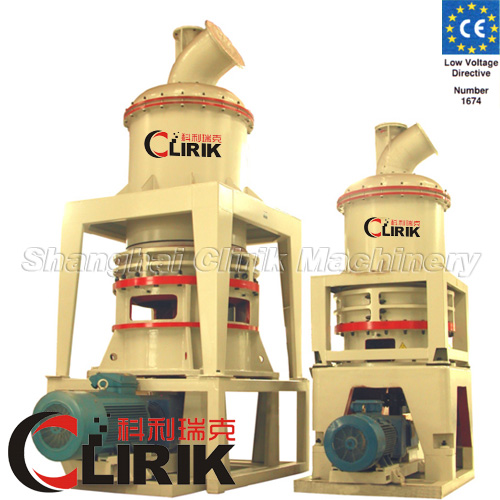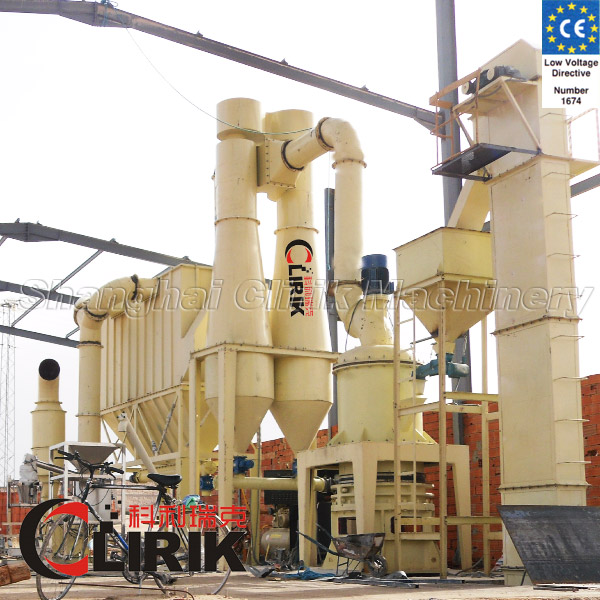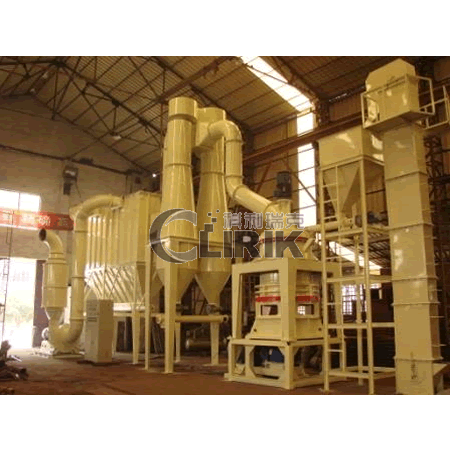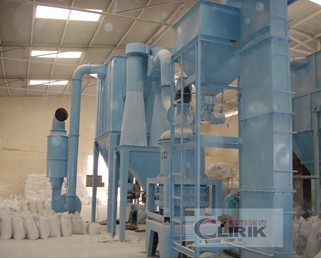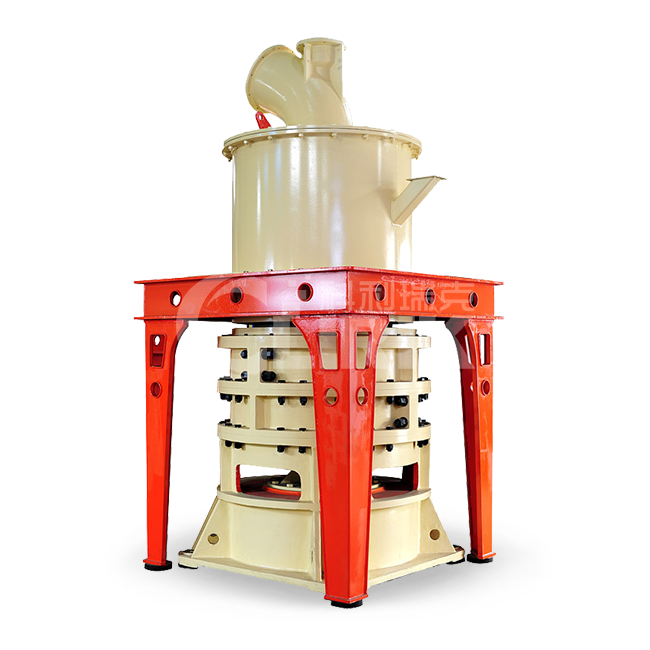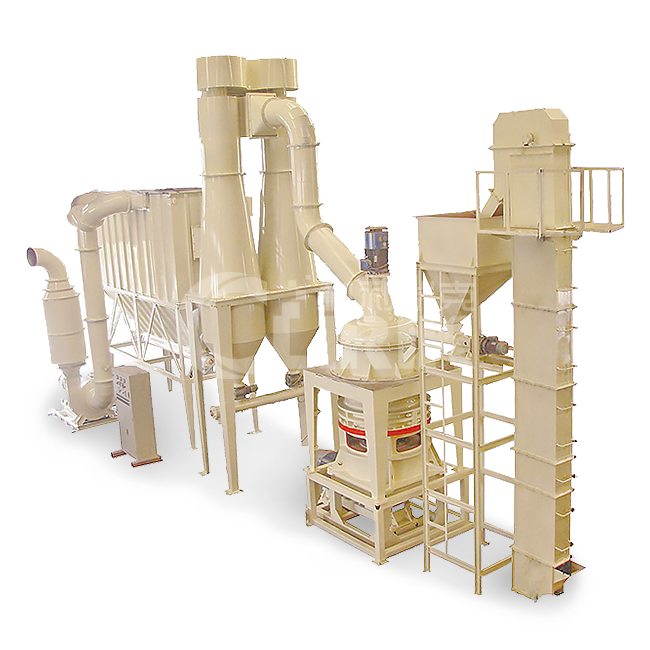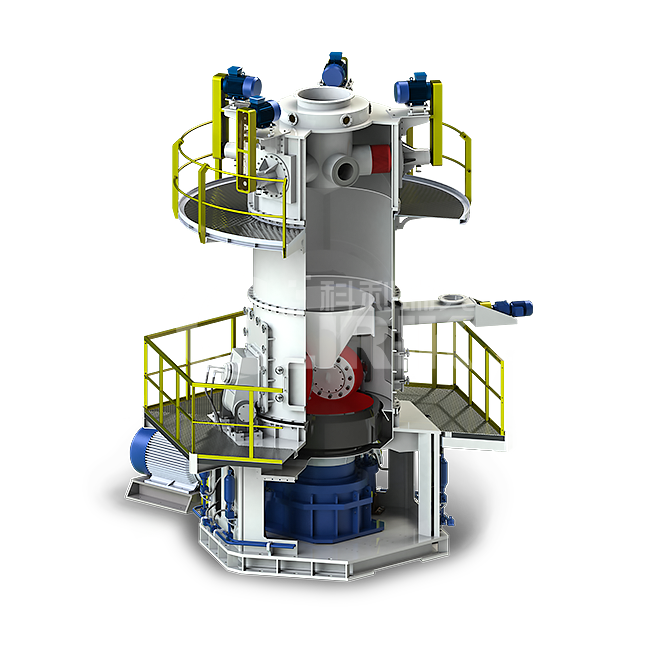The industrial use of water slag powder:
Water slag is used for building materials for the production of cement and concrete, because water slag has the potential of water hard gelling properties, in the cement, lime, gypsum, etc excitation agent function, can be used as a high quality cement raw material, can be made into: slag Portland cement, gypsum slag cement, lime slag cement, slag brick, slag concrete, etc.
Working principle of Water slag powder grinding mill:
HGM series Water slag powder grinding mill mainly consist of main unit, classifier, powder collector, dust cleaner, blower, muffler, sound-proof room, crusher, bucket elevator, storage hopper, and vibrating feeder.
After crushed by hammer crusher, the large materials become small ones and are sent to storage hopper by elevator, and then evenly sent to the upper distribution plate of the turnplate by vibrating feeder and sloping feeding pipe.
When the grinding mill is at work, all the grinding rollers are rolling in the ring, and the materials are driven to the edge of the turnplate by the centrifugal force and fall down into the grinding chambers where the materials are repeatedly pressed, crushed and grinded by the rollers.
The high-pressure air blower constantly inhales air within the grinding mill and, in turn, the airflow with crushed materials are brought to the classifier whose high-speed impeller will screen the airflow: the unqualified particle size will fall and return to the mill for being reground while the qualified particle size mixed with air will go into the cyclone powder collector. Most of the qualified powders will fall and exit from the discharging valve at the bottom; a small proportion of the fine powders, with airflow, moves to the dust cleaner, and clings to the surface of the filter bags. At the same time, the fine powders clinging to the surface fall down by the sudden vibration of the filter bags, which is caused by the instantly ejected high-pressure gas controlled by the pulse valve. The materials from the above two lots are sent by the conveyor at the bottom to get finished powders packed. In addition, filtered clean air will be emitted from the air outlet of muffler in the end.
Technical data of Water slag powder grinding mill:
| Model | HGM80 | HGM90 | HGM100 | HGM100A | HGM125 |
| Ring Diameter(mm) | 800 | 930 | 1035 | 1035 | 1300 |
| Ring Number (PCS) | 3 | 3-4 | 3 | 4 | 4 |
| Roller Number(PCS) | 21 | 24-32 | 27 | 34-36 | 40-44 |
| Main Shaft Speed (r. p. min) | 230-240 | 200-220 | 180-200 | 180-200 | 135-155 |
| Input Size (mm) | ≤20 | ||||
| Finished Size (um) | 5-47(325-2500) | ||||
| Capacity (t/h) | 0.5-4.5 | 0.6-6.5 | 0.7-7 | 1-8.5 | 1.5-12 |
| Outlet Size L*W*H (m) | 13.9*4*6.2 | 14.7*4.8*7.2 | 18*4.6*8.6 | 18*4.6*8.6 | 14*9*10.25 |
| Motor powder (KW) | 145-165 | 185-204 | 263 | 263-290 | 380-430 |
Note: This specification is just referencing, any changes are subject to the products.
Features and advantages of Water slag powder grinding mill:
● High Efficiency
Under the same finished final size and the same motor power, the capacity of grinding mill is twice as much as jet mill, mixing grinder and ball mill, and energy consumption decreased 30%.
● Long lifecycle of spare parts
The ring and roller are forged by special material with high utilization. Under the same grinding material and finish special size, the lifecycle of spare parts is about one year, which is 2-3 times longer than impact mill or turbo mill. Furthermore, the lifetime can reach 2-5 years for grinding calcite carbonate.
● High safety and reliability
As no rolling bearings or screws in grinding cavity, there are no problems caused by bolts shedding or rapid wear of bearings and seal components.
● High fineness, flexible adjustment
The final fineness of the grinding materials can be adjusted between 325 meshes and 2500 mesh (47-5 micron), and the product fineness can reach D97≤5μm.
●Environment-friendly
The application of pulse bag filter and muffler greatly alleviates dust pollution and noise.
●Advanced intelligent speed control device
Convenient adjusting, more uniform particle size.

